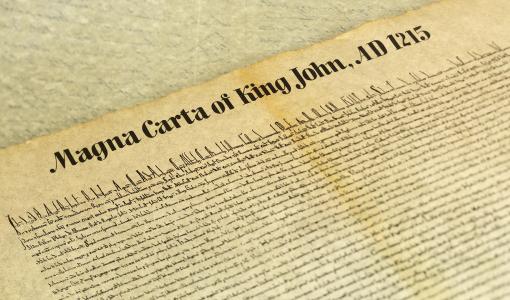The Magna Carta, Latin for “Great Charter,” is an iconic document that has shaped the course of history, not only in the United Kingdom but also globally. This legal document was signed by King John of England in 1215 and was created to limit the power of the monarchy and protect the rights of the people. Its impact has been felt far beyond the borders of England, as it has inspired similar legal documents around the world. This article explores the origins of Magna Carta, its significance in the UK and globally, and its lasting legacy.
Origins of Magna Carta
Magna Carta was created during a period of political turmoil in England. In 1214, King John had suffered a humiliating defeat in France and was facing pressure from his barons to address their grievances. These grievances centered on the king’s abuse of power and his disregard for their rights. The barons were particularly concerned with the arbitrary imposition of taxes and the lack of due process in the legal system.
In response to this pressure, King John agreed to meet with the barons at Runnymede, a meadow near the River Thames, on June 15, 1215. It was at this meeting that Magna Carta was signed, outlining a range of rights and restrictions on the king’s power. Among the provisions were protections for the Church, limits on the king’s ability to impose taxes without the consent of the barons, and guarantees of due process for all.
Significance in the UK
Magna Carta had an immediate impact on the political landscape of England. It established the principle that even the king was subject to the law and that he could not arbitrarily impose his will on his subjects. This principle would be enshrined in the English legal system and would form the basis for the development of the concept of the rule of law.
Magna Carta also had a profound impact on the development of English democracy. It established the principle that the king’s power was not absolute and that the barons had a say in the governance of the kingdom. This principle would eventually lead to the establishment of Parliament and the development of a representative democracy.
Finally, Magna Carta has become an important symbol of British identity. It is seen as a foundational document of the British legal and political system, and it has been cited in countless legal cases throughout British history.
Global Significance
The influence of Magna Carta extends far beyond the borders of England. The document has been translated into multiple languages and has served as a model for legal systems around the world.
In the United States, Magna Carta is often cited as a foundational document for the development of American democracy. The principles of limited government, due process, and the rule of law are central to the American political system, and they can all be traced back to Magna Carta.
In addition, Magna Carta has inspired the creation of similar legal documents around the world. For example, the United Nations’ Universal Declaration of Human Rights and the European Convention on Human Rights both draw heavily on the principles outlined in Magna Carta.
Legacy
Magna Carta’s legacy is still felt today, nearly 800 years after its signing. Its principles have influenced the development of legal and political systems around the world, and its enduring legacy is a testament to its enduring importance.
In England, Magna Carta is celebrated every year on June 15, the anniversary of its signing. The document itself is housed at the British Library in London, where it remains one of the most treasured artifacts of British history.
Conclusion
Magna Carta is a document that changed the course of history. Its principles of limited government, due process, and the rule of law have had a profound impact on the development of legal and political systems around the world. Its significance in the UK and globally cannot be overstated, and its enduring legacy is a testament to its enduring importance.



 For all latest articles, follow on Google News
For all latest articles, follow on Google News